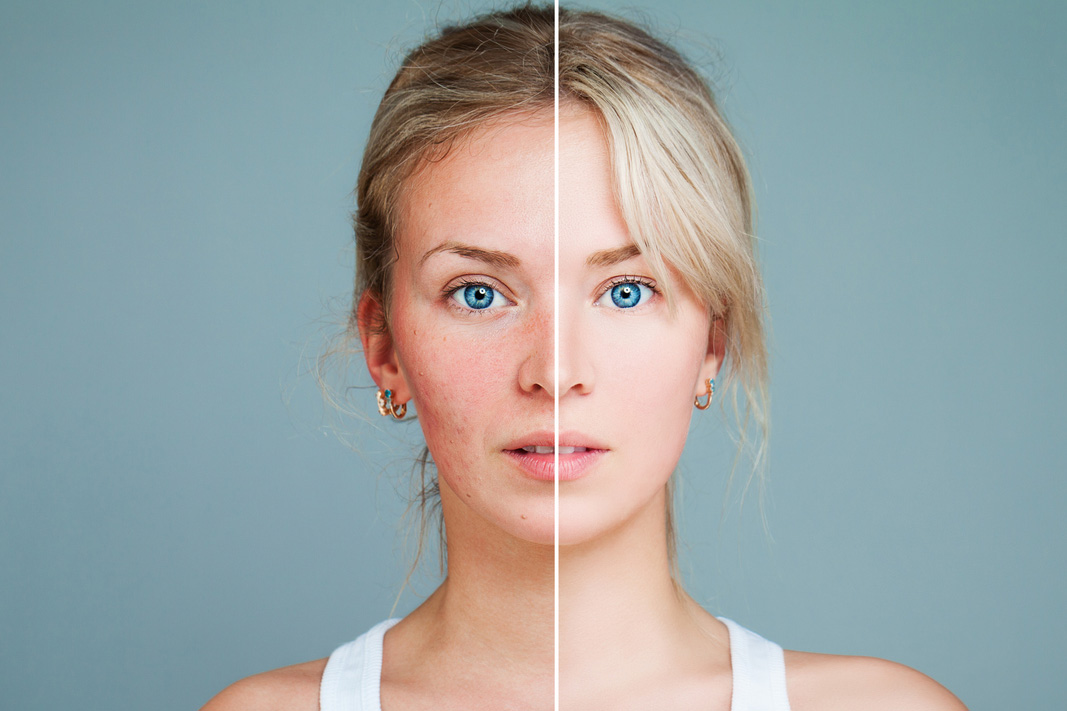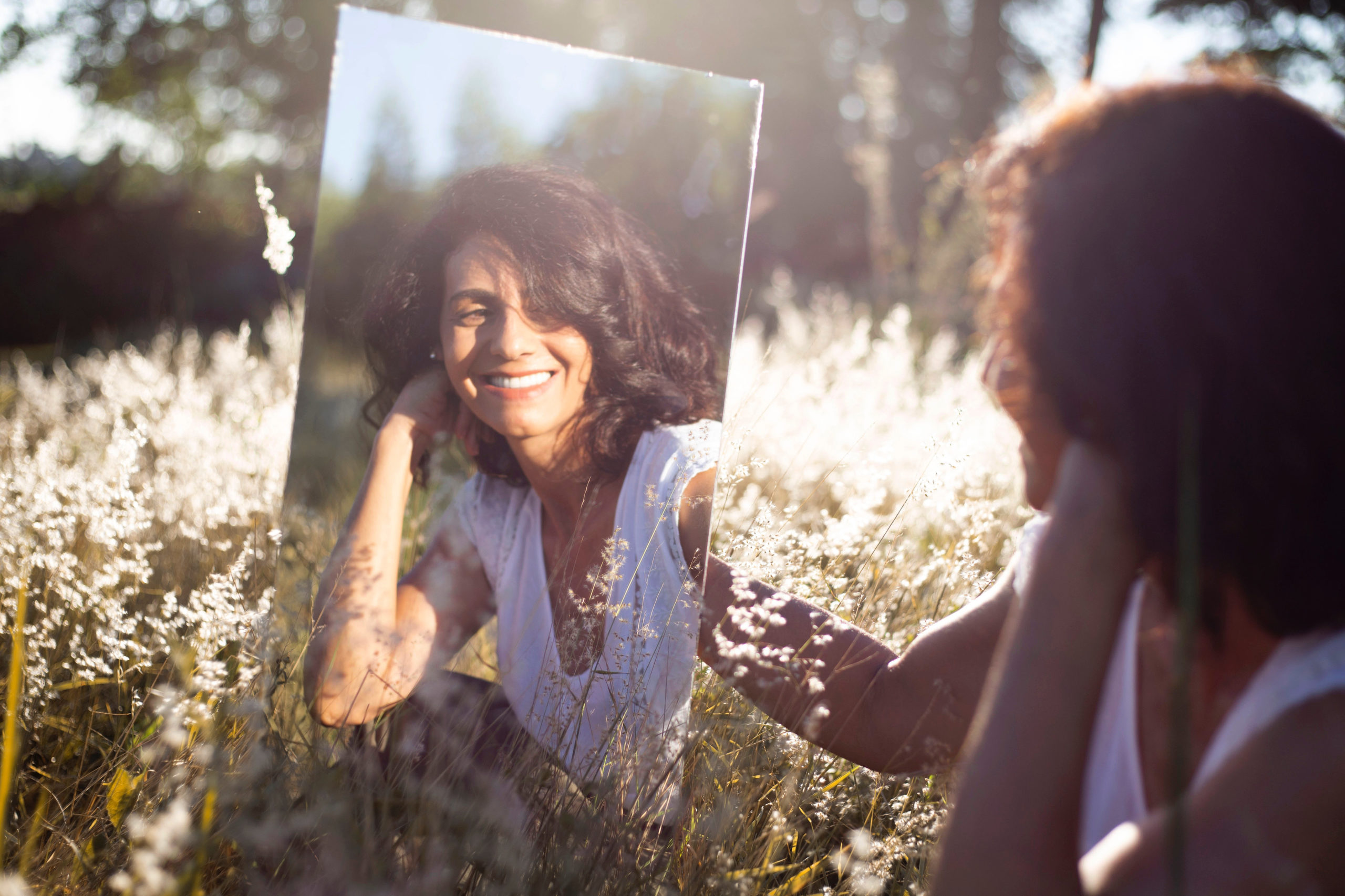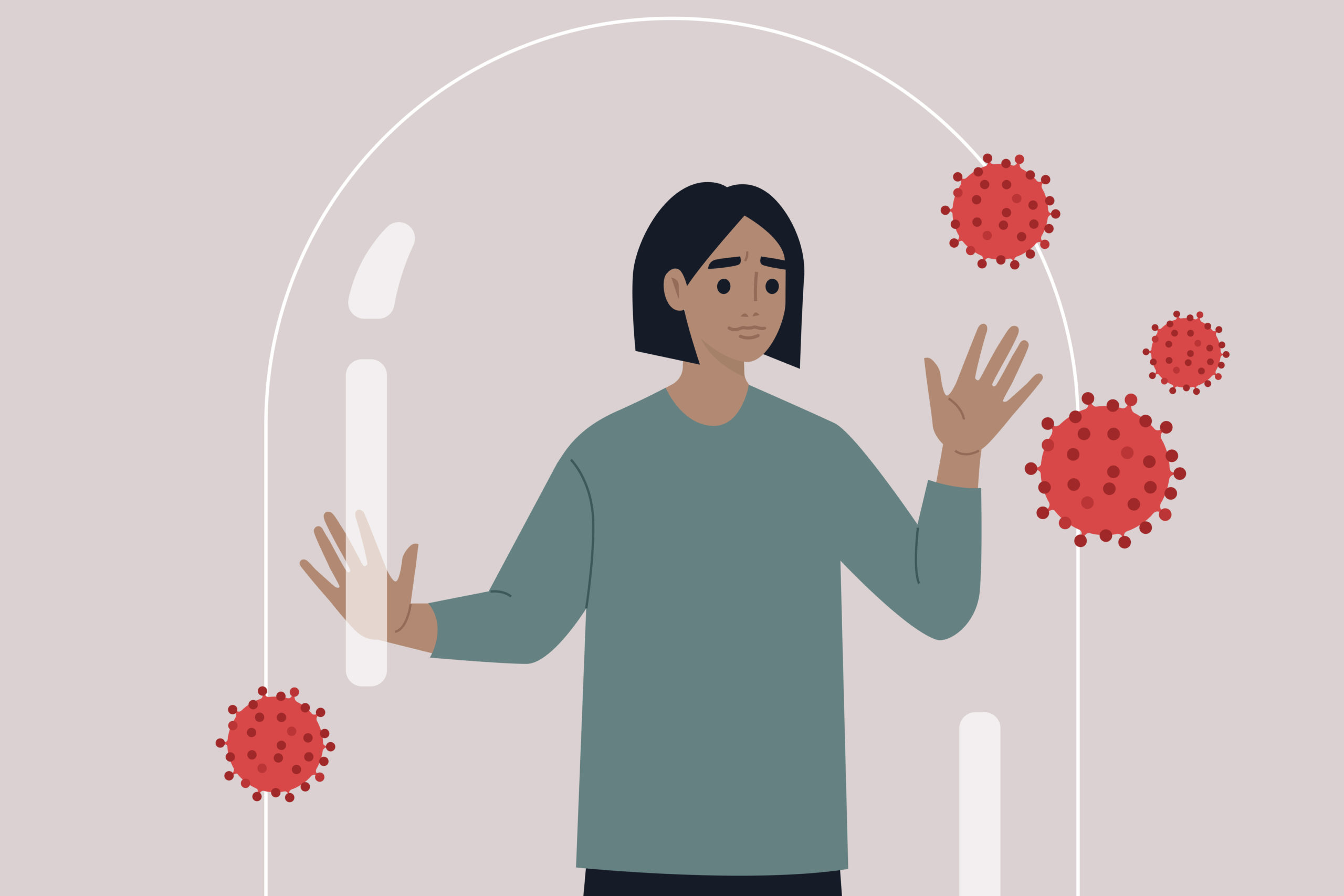Many midlife women will tell you that ageing brings many changes to your emotions, body and skin. Due to our skin becoming more sensitive as we age, many of us are forced to adapt our skincare routine or diets. One common condition that can occur in midlife is Rosacea. One in ten people suffers from Rosacea, although it is believed there are more who are undiagnosed or misdiagnosed, and many people first start noticing symptoms in there 30’s. It is considered to be mostly women who suffer, but this may be because women are more likely to seek out help and treatment.
Rosacea is often misunderstood and misdiagnosed which can make it difficult for sufferers to get treated and many give up on seeking help. In fact, 82% of suffers felt like their symptoms were not controlled. As it affects your appearance, many people report having low esteem, embarrassment and frustration, and half of the sufferers said it negatively affects them at work.
So, What Is Rosacea?
Rosacea is a chronic, inflammatory skin condition, which usually occurs in the face. It can affect all skin types but it is more common in those with fair skin.
Symptoms include:
- burning and stinging sensations
- permanent redness
- spots (papules and pustules)
- small blood vessels in the skin becoming visible
It is a condition that can be under control some of the time, but at other times it can cause bad flare-ups. Sometimes it is mistaken for adult acne, due to having a similar look which can lead to misdiagnoses. Generally, acne will come with open and closed comedones (spots with white or blackheads) but if you aren’t sure, it’s best to go see your GP or a specialist.
Unfortunately, the initial cause of Rosacea is unknown, but some of the suggested causes include blood vessel abnormalities and the increased presence of microscopic mites or bacteria. Rosacea is also likely genetic as it tends to run in families although doctors aren’t certain which genes it is that causes it.
What are the Treatments for Rosacea
Unfortunately, there is no known cure for Rosacea but there are a number of effective treatments that can help alleviate symptoms. Talk to your doctor, as they may be able to offer you a course of antibiotics or topical medications to deal with the inflammation. It’s important to seek treatment early, as left untreated it can cause other issues such as irritation around the eyes and in worst cases, enlargement of the nose (although this mainly occurs in men). If you don’t think you are getting the right treatment from your GP, then consider speaking to a specialist. It’s also important to ask for regular reviews of your medication as there may be new options to consider.
Know Your Triggers
Although not direct causes, a lot of people with Rosacea find that certain triggers make the flare-ups worse. Different people have different triggers however, so it’s important to know what yours are. Common triggers can be:
- exposure to sunlight
- stress
- hot or cold weather
- strong winds
- strenuous exercise
- alcohol
- hot baths
- spicy foods
- hot drinks
- humidity
- caffeine
- the menopause
- dairy products
- certain medicines – such as amiodarone, corticosteroids and high doses of vitamins B6 and B12
Keep a diary of what you eat and drink, any workouts you do, medications and your emotions and note down how your skin responds.
Rosacea and Skincare Products
Those with Rosacea often find their skin much more sensitive than before. This means that some harsh skin-care products, like acids, acne treatments or retinoids, may cause flare-ups. This is another reason that getting a correct diagnosis is important – many people mistake it for acne and find that products for oily skin are too harsh, or think they have dry skin and apply rich creams which are particularly bad for Rosacea. It’s best to keep to products with simple and natural ingredients and do a patch test before using the products fully.
When it comes to make-up, its always a good idea to use natural, gentle, non-fragranced products. Green Concealers are great for hiding the redness although generally the less makeup you wear is better. Whatever you put on your skin, SPF is a must all year round as sunlight is a common trigger!
There are tons of Instagrammers out there who suffer from Rosacea. @talontedlex is a fantastic person to follow as a British Skin Foundation Ambassador with honest pictures and plenty of beauty and skincare tips.
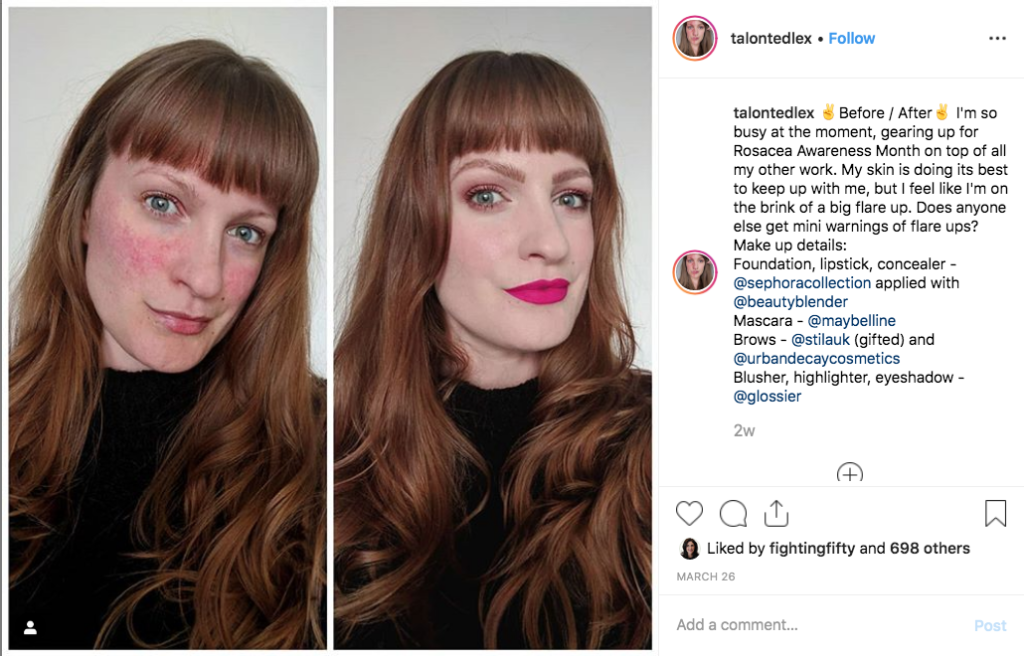
Here are some products that come recommended for those with Rosacea. It’s important to be patient with any products you use as, usually, they will take a few weeks to see a real difference.
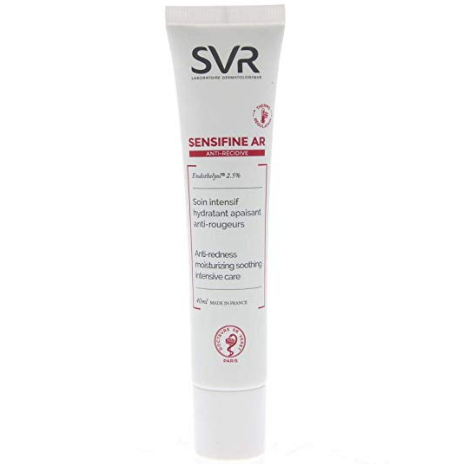
SVR Sensifine AR Anti-Redness Moisturising Intensive Care
French Pharmacy Brand SVR is often recommended by dermatologists, and this anti-redness moisturiser works really well to reduce redness and the appearance of blood vessels on affected areas. It also provides protection and hydration to help prevent further outbreaks. The treatment works gradually but gives an instant cooling effect on the skin. Plus its hypoallergenic and non-comedogenic formula is also free of preservatives, fragrance, parabens, meaning it won’t irritate your skin.

Paulas Choice Skin Recovery Cleanser
Paula’s Choice is a great skincare brand and this gentle but effective cleanser soothes and hydrates your skin. Its made for normal to very dry skin types and so it won’t strip your face of much-needed moisture and the natural ingredients like soybean oil and chamomile flower extract won’t clog up your skin.
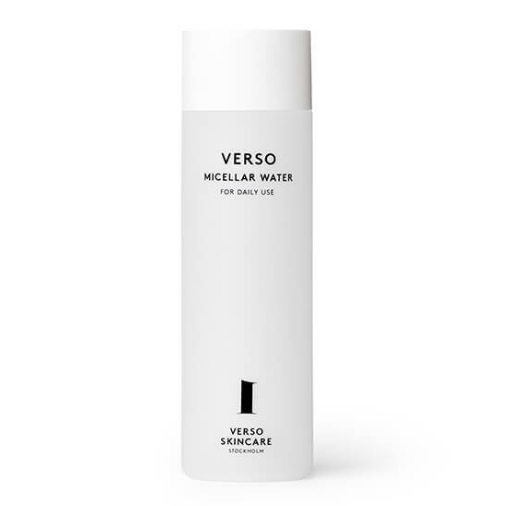
Verso Micellar Water
For daily use, Verso Micellar water draws our impurities from the skin. The Micellar molecules wash, rinse and hydrate at the same time, whilst removing direct, oil and makeup from the face with just a few strokes with a cotton pad. For those with Rosacea, this is very gentle on the skin so you can cleanse your face without worrying about irritating it.
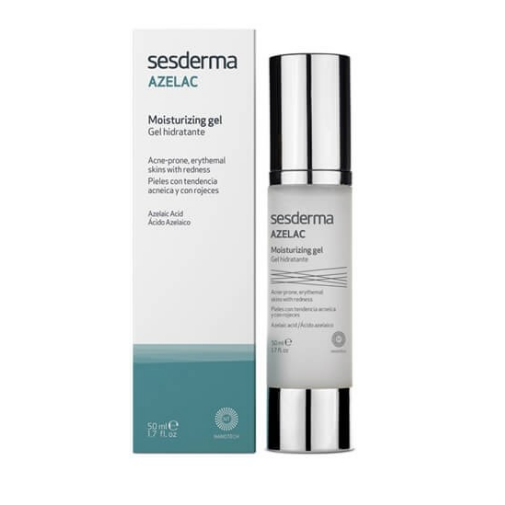
Sesderma Azelec Mosturising Gel
This hydrating gel is especially for people with Rosacea, with a calming and anti-radical action that fights redness and clears impurities. It also helps diminish the pimples that can appear with the condition and increase skin hydration and elasticity.
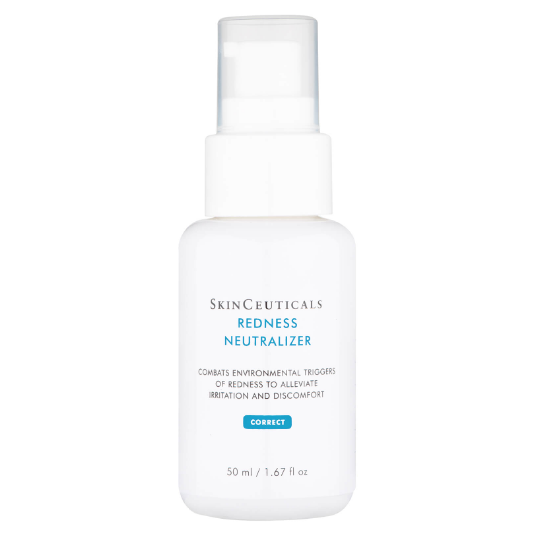
SkinCeuticals Redness Neutralizer
A world-renowned leader in advanced skincare, SkinCeuticals have developed this redness-reducing cream. With a gel-like consistency, this is lightweight with natural plant-based ingredients and provides a barrier for your skin. It combats all the environmental triggers that lead to blotchiness, redness and flushing.

Pai Skincare Rice Plant and Rosemary BioAffinity Toner
Designed for regular use, this plant-based toner has all the vitamins and minerals to calm, rebalance and clear sensitive skin. Unlike normal toners, Pai doesn’t use alcohol as this can strip the face of its natural oils. The anti-inflammatory ingredients of Caffeic Acid and Rosemarinic acid soothe sensitive skin, while natural anti-oxidants purify your skin.
Rosacea and Diet
There are some common triggers in peoples diets that can cause flare-ups including caffeine, alcohol and spicy foods. Nutritional supplements that contain healthy fats and other nutrients may help calm redness including:
- omega-3 fatty acids
- omega-6 fatty acids
- flaxseed oil
- zinc sulfate
Hannah Sillitoe is a skin-wellbeing coach who has claimed to cure her own psoriasis, acne and eczema through her diet. Her plant-based recipes are designed to help people with their skin conditions including Rosacea. Her Instagram @mygoodnessrecipes is full of inspiration for plant-based eating and avoiding common triggers, along with her cookbook.
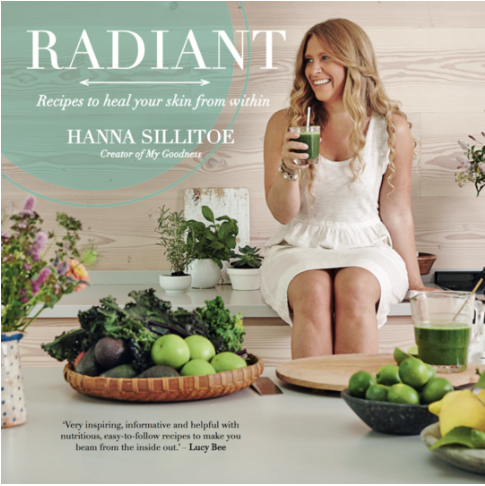
She has some recommendations as a start point including:
- Drink 2-3 litres of clear, still water per day and avoid sparking water due to the carbonic acid.
- Grab a good PH chart and select foods that are from the alkaline side as much as possible.
- Try to incorporate anti-inflammatory ingredients into your diet like turmeric, shiitake mushrooms and green, leafy vegetables.
- Avoid tomatoes, potatoes, aubergines and chilli peppers as their natural in-built pesticides that stop animals eating them can cause your body to go into fight mode.
There are so many things that can affect Rosacea, to its important to be patient when it comes to medication, diet and skincare. Don’t give up on finding what works for you!
